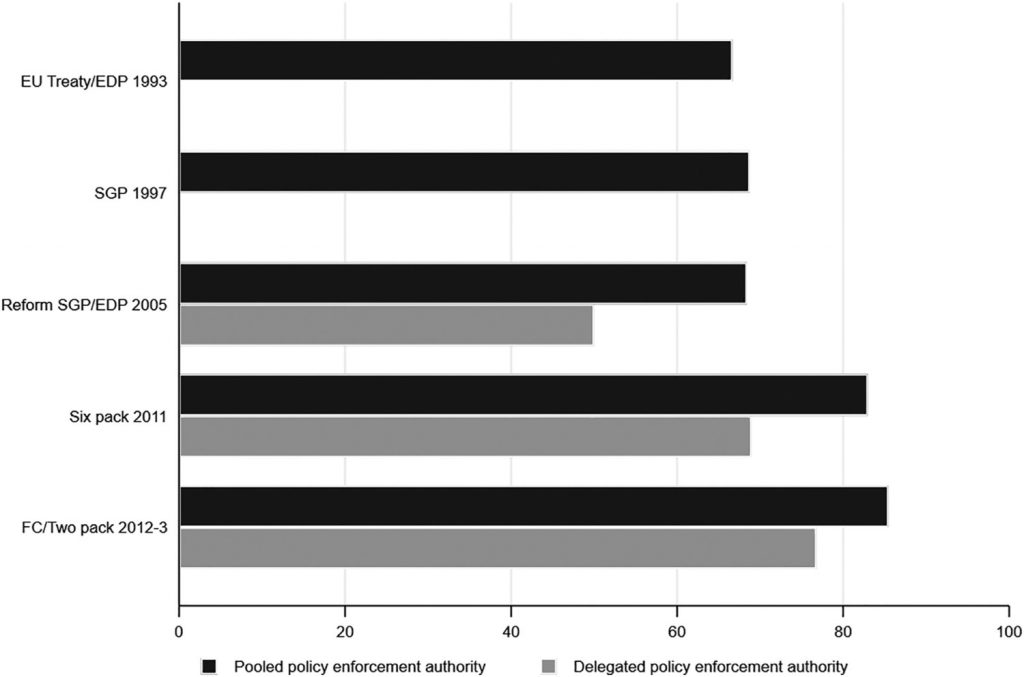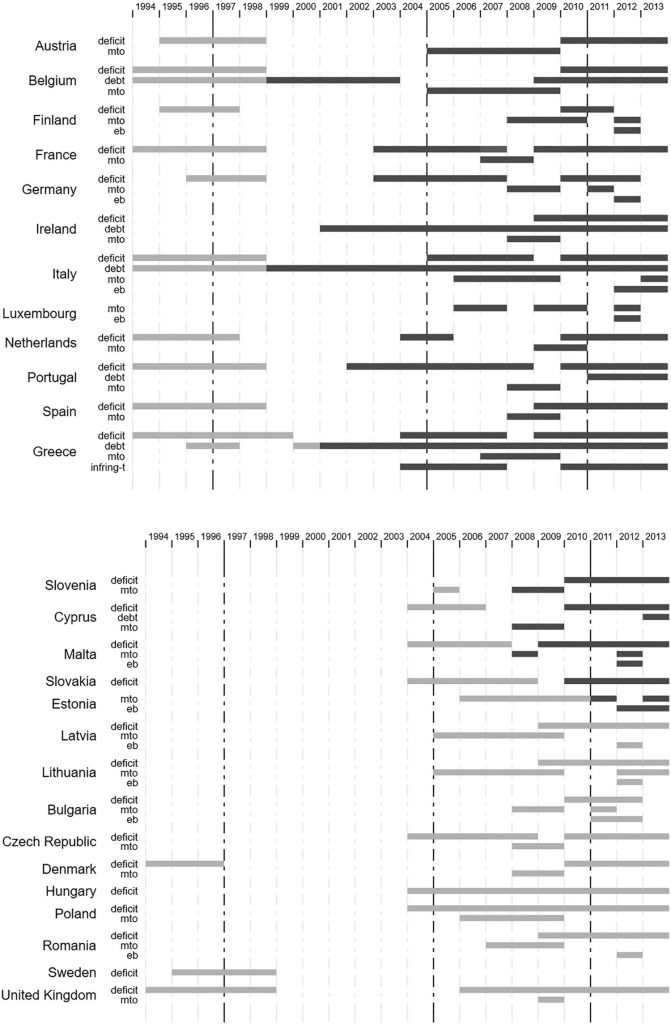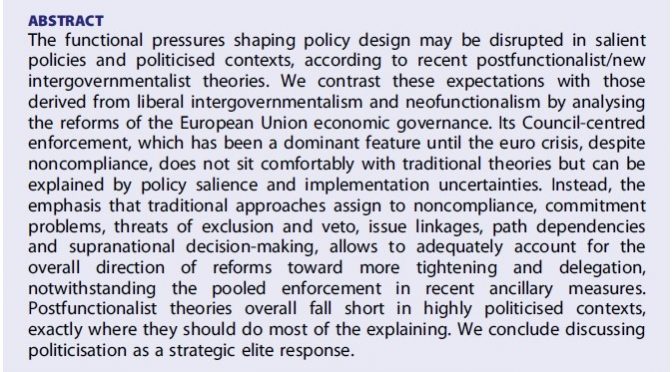Does politicization – the expansion of the scope of national conflict – shape EU policy design? Are the functional pressures shaping design disrupted?
We address these questions with regard to the EU economic governance regime in this @jepp_journal article.
We reach the following conclusions:
a) This regime, based heavily on Council-centred enforcement, is clearly not in line with standard liberal-intergovernmental expectations about policy design, especially given significant noncompliance.
The first figure below illustrates how enforcement-related prerogatives are pooled within the Council, rather than delegated to the Commission, as liberal-intergovernmentalism suggests, despite the extensive noncompliance. The second figure shows the patterns of noncompliance with this regime across time and member states.


b) We argue that this design has more to do with salience and severe implementation uncertainties, related to somewhat arbitrary criteria, like the reference values, and to unobservable quantities, whose measurement depends on uncertain estimates, THAN with politicization.
For instance, the Council is unlikely to heavily rely on Commission enforcement if the measurement of the output gap is highly uncertain.
c) Yet, problems of compliance and commitment, threats of exclusion and veto, issue linkages, path dependencies, and supranational involvement remain central in explaining the overall direction of reforms toward national tightening, limitation of Council authority and delegation to the Commission, despite recent politicization
d) Note however that this was a case where mass domestic politicization was triggered BY noncompliance and elite conflict. So we should not conclude that politicization is necessarily epiphenomenal for policy design.
Thanks to the special issue editors: C. Reh, C. Koop, and E. Bressanelli.
Franchino, Fabio, and Camilla Mariotto (2020) ‘Politicisation and Economic Governance Design ‘ Journal of European Public Policy, 27:3, 460-480.
